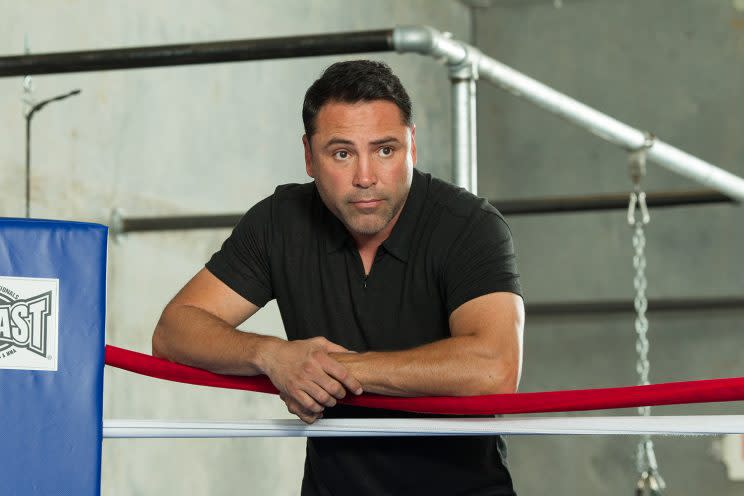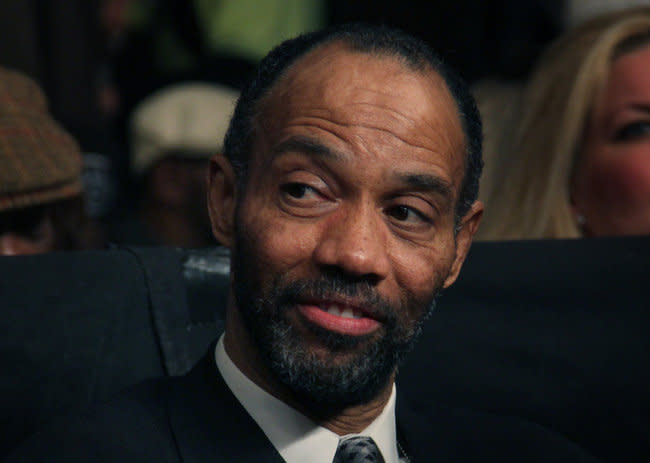How boxing promoters are hurting the sport, and how they could help revive it

About 21 percent of Americans approve of the job that Congress is doing, according to the aggregate of six major polls, compiled by Real Clear Politics. About 65 percent disapprove.
I suspect that if you similarly polled boxing fans about the job promoters are doing, the numbers would be similar, if not slightly worse.
There are a lot of good things happening in boxing. There already have been several sensational fights that will deserve serious consideration as Fight of the Year, and we’ve already had a number of jaw-dropping knockouts.
In the ring, the action has been very good to excellent.
But as has become the case with boxing, even when things go well, they go wrong.
First, let’s take the case of Keith Thurman, the wonderful unified welterweight champion who lifted the WBC belt from Danny Garcia in a fight viewed on March 4 by more than 5 million people on CBS.
That was a career-defining win, but Thurman hasn’t been heard of publicly since. It was a lost opportunity to help him become a star.
Fighters who win big fights or who compete in outstanding events have a short window of opportunity afterward to capitalize on it. Nobody, though, explained that to Thurman.
There was no post-fight tour. He didn’t appear on the cover of any magazines, or even make himself available the following week for interviews.
Thurman is not only an outstanding fighter, he’s a charismatic personality who is thoughtful and well-spoken. Someone needed to be out there pounding the drum for him after the fight, not just before it, but the PBC completely blew it.
The PBC is doing many great things, but it is beyond horrible at public relations thanks to Al Haymon’s distrust of and lack of interest in the media.
The problem is, those 5 million fans who watched Thurman-Garcia were the biggest prime-time audience boxing had since 1978 and the second biggest overall since 1978. Many of them hadn’t seen Thurman before, and didn’t know enough about him.

Their interest was piqued by his performance in the ring, but he’s now on the shelf, not to be seen again until the next time he has something to sell.
That’s the short-sighted thinking that permeates boxing.
It’s been a strange year. Promoter Bob Arum and adviser Michael Koncz have made a farce out of Manny Pacquiao’s next fight. First, his opponent was going to be Jeff Horn in Australia. Then, it was going to be Amir Khan in the Middle East.
Now, it’s neither and no one knows when the one-time superstar is going to fight again. And who will believe Arum and Koncz when they do say?
HBO continues to be stingy with dates and its money. It took, it seemed, an act of Congress to get HBO to approve the money to tab 2008 Olympic gold medalist Felix Diaz as Terence Crawford’s next opponent.
Crawford is a star inside the ring, but he is not particularly well-known outside of his hometown of Omaha, Neb. He needs the exposure that big fights bring, and even after beating previously unbeaten Viktor Postol in a title unification bout last summer, he was fed journeyman John Molina Jr. in the fall.
And then there’s the case of Canelo Alvarez and Gennady Golovkin, arguably the best fight that could be made in boxing right now.
It’s been spoken about for two years, but it still hasn’t become a reality.
Golovkin won the most significant fight of his life on March 18 when he defeated Daniel Jacobs in a IBF-WBA-WBC middleweight unification bout. But he hasn’t been seen or heard from since.
Oscar De La Hoya, who promotes Alvarez, has certainly been heard from and has used his time in front of the media to try to gain a negotiating advantage. Golovkin should have spent the next four or five days after his win over Jacobs pounding the pavement, making the argument over and over for a fight with Alvarez in the fall.
Fortunately, indications are good that the fight may yet occur, but Golovkin should have been out there mounting a campaign and putting pressure on De La Hoya and Alvarez.
Fighters want to rest after a hard training camp and a grueling fight, but when they’re in their primes and are striving for mainstream status, they need to sacrifice a few more days. And while they’re training, the promoters need to be quietly behind the scenes pulling strings to take advantage.
Thurman defeated Garcia in New York. So why not on the day after the fight, hold a small media gathering where the reporters had one final shot to talk to him? Many of those 5 million who watched weren’t all that familiar with him, but may have become interested by his performance in the fight. Ride that wave and see where it takes you.
They could have pitched him to GQ, say, to expose him to a different type of audience. There are many ways to promote that boxing simply blows off.
It’s hard work, and while many of the fighters want the glory, they’re not willing to do what it takes.
One thing few people understand about Mayweather is how hard he worked pushing and promoting himself. Mayweather always worked extremely hard to sell himself, both before and after fights. The results are proof that it can work.
The barrier to entry is low in promoting boxing; it’s not like the NFL, where the owners are billionaires and are still heavily vetted. In boxing, if you pay a small fee to an athletic commission and pass a minor background check, you’re able to promote.
Fighters, though, rely on their promoters to view the bigger picture, to work across the aisle, to keep the sport’s long-term health in mind.
Whenever someone says boxing is dead, it’s an indictment of the promoters not only of today, but of the last few decades.
There is plenty of opportunity, but too many promoters wait for a television network to pay a license fee and a venue to pay a site fee and that’s the extent of their promoting.
It hasn’t worked in the past, and it’s surely not going to work now.
Make the big fights, promote the fighters, think creatively and invest in the sport.
A little effort can produce surprising results.
Popular combat sports video on Yahoo Sports:

 Yahoo Sports
Yahoo Sports 
